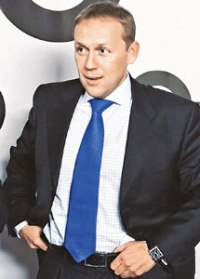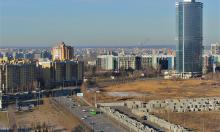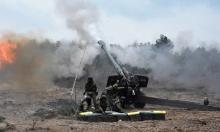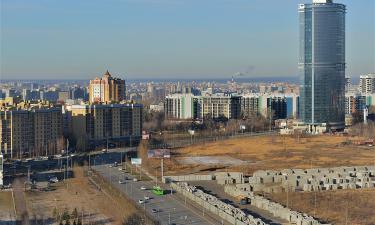British prosecutors ask to extradite Lugovoi, but Russia refuses

Prosecutors of Britain charged a former KGB agent with killing Alexander Litvinenko by radioactive polonium-210 and asked Russia to extradite him. Russia quickly refused.
Andrei Lugovoi, who has repeatedly denied any involvement with the death, had met with Litvinenko - also a former KGB operative - at a London hotel only hours before Litvinenko became ill with polonium-210 poisoning.
Litvinenko, 43, died Nov. 23 after ingesting the rare radioactive isotope. On his deathbed, he accused Russian President Vladimir Putin of being behind his killing. The Russian government denies involvement.
The politically charged case has driven relations between London and Moscow to post-Cold War lows.
One of Foreign Secretary Margaret Beckett's top deputies summoned the Russian ambassador on Tuesday and urged Moscow to cooperate. Prime Minister Tony Blair's spokesman said the government had an extradition agreement with Moscow.
"Murder is murder; this is a very serious case," Blair's spokesman said on condition of anonymity, in line with government policy. "The manner of the murder was also very serious because of the risks to public health."
The Russian prosecutor-general's office said it would not turn over Lugovoi but that he could be tried in Russia.
"In accordance with Russian law, citizens of Russia cannot be turned over to foreign states," the office's spokeswoman, Marina Gridneva, said in remarks broadcast on NTV television.
"A citizen of Russia, committing a crime on the territory of a foreign state, can, upon presentation of material by this state, be brought to criminal responsibility, but only in Russia," she said.
After the poisoning, investigators unearthed a trail of radiation across London, which led to several buildings being cordoned off. Some British Airways flights were grounded because of concerns they might be contaminated by polonium. Health officials also tested hundreds of individuals for suspected radiation poisoning.
Seventeen people tested positive for above-average levels of polonium, but authorities say the risk to their health is low. Two buildings remain closed to the public.
Litvinenko had become a vocal Kremlin critic who said Russian authorities were behind deadly 1999 apartment building bombings that fueled support for a renewed offensive against separatists in Chechnya. Litvinenko also was a close associate of slain investigative journalist Anna Politkovskaya.
Litvinenko's widow, Marina, said she was "happy with job Scotland Yard did today." She said she hoped that Lugovoi would be brought to Britain and tried in London so she could "get justice" for her 11-year-old son Anatoly.
"I'm absolutely sure it has to be here in London, not in Russia," she said of court proceedings. "Everything that happened, happened here."
Following the announcement, she met with the Russian ambassador in London. She said the ambassador would not say whether Lugovoi would be extradited.
The extradition request represents a new challenge to already tense relations between London and Moscow. In a speech last year to Russian ambassadors, Putin laid out his foreign policy goals and urged them to strengthen relations with the "leading" EU countries of Italy, France, Germany and Spain. Notably, Britain was left out.
In January 2006, Russia's Federal Security Service, the FSB, accused four British diplomats of spying, after a report on state-run television said British diplomats had contacted Russian agents using communications equipment hidden in a fake rock in a Moscow park.
The FSB said one of the diplomats had provided money for non-governmental organizations; it used the episode to justify a crackdown on NGOs.
The Kremlin is also angry that Britain has given refuge to billionaire Boris Berezovsky, once an influential Kremlin insider under former President Boris Yeltsin. Berezovsky fell out with Putin and fled to Britain in 2000 to avoid a money-laundering investigation he says was politically motivated. He has been vocal in accusing Moscow of murdering "my friend Alex."
Russian officials have suggested that a Russian living overseas committed the murder. Berezovsky was among those questioned in the parallel investigation.
Berezovsky said that the charges against Lugovoi point directly to the Kremlin because such an audacious and complicated killing would not be possible without state support
"I am 100 percent sure that the British government understands the importance of this case," Berezovsky said.
Berezovsky said that Lugovoi, once his chief bodyguard, refused to come to London for questioning despite the fact Berezovsky offered to pay for "the best lawyers."
Subscribe to Pravda.Ru Telegram channel, Facebook, RSS!




